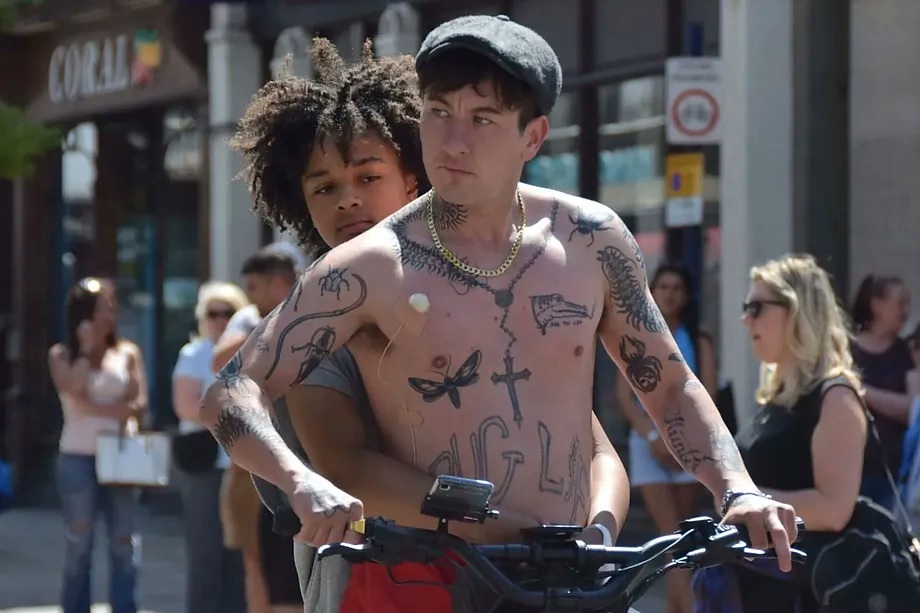Andrea Arnold likes to talk about how she shoots, how she chooses actors, how she directs them, how she suffers, how she enjoys, and how she organizes and disorganizes the chaos that she lives and makes others live in each frame of her filmography. "The key is in how to bring scenes to life, to let life pass through them." Pause. "I remember that the kids from Bird completely made me lose control. I had to be quite firm with them to get them to do what I wanted. They were untamable, but full of life... And that's why I love them," she says in what could well be taken as the style guide of Arnold herself, of her way of being in the world and in cinema.
The latest work by the author of Fish Tank, Wuthering Heights, and American Honey leaves little room for doubt. It all breathes that life that obsesses her so much. It tells the story of a 12-year-old teenager. Hers and her brother's. Both of them and that of a father on a scooter who knows neither rules nor moderation. The three of them and that of a solitary being with wings. All live in an occupied house that is falling apart with the same stubbornness that everything else collapses. Everything is sinking.
Hand in hand with the newcomer Nykiya Adams and with the help of two of the most peculiar actors in recent cinema, Barry Keoghan and Franz Rogowski, what follows is an unclassifiable story, deeply sad and hopeful at the same time. In Andrea Arnold's cinema, what matters is not to display the harshness of life, but to understand it. Her intention is not only denunciation, but also the construction of meaning. Her characters are not archetypes or models or examples of anything, her characters are exactly that, characters with aspirations, loves, disappointments, and doubts.
"I am convinced that we are living in a hard and dark time, the darkest I have ever known in my life. And that is why we cannot afford to falter. Optimism is an obligation," she says in an accurate description of her own film. In essence, Bird tells the strange relationship between two strangers: the teenager and the stranger. And it does so with the camera always at eye level, respecting distances, without condescending manners. The idea is to delve into the mysteries of mystery itself, into the most intimate vibration of a life that is discovered and, in doing so, becomes aware of the good and the bad, the cruel and the tender. It is cinema without definition, it is cinema like life itself, it is Andrea Arnold.
"In truth," says the director, "my relationship with cinema is very accidental. Due to my background and biography, I was not supposed to be a filmmaker. The only movie I remember watching as a child was Mary Poppins. My ambition was to be a dancer. At 18, I ran away to join a roller-skating dance group called The Roxy Rolls." Then, she says, she accidentally stumbled into a television audition. "I was very bad as an actress, but I was fascinated by the process, by how the images combined to create a story. And how from all that, life emerged," she says.
Andrea Arnold's new film is, for better or for worse, like her. Chaotic, vibrant, unbalanced, imperfect... full of life.
